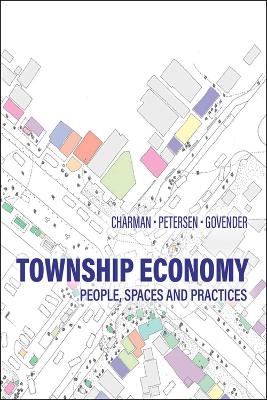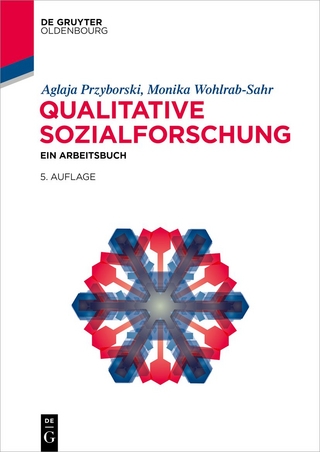
Township Economy
HSRC Press (Verlag)
978-0-7969-2577-0 (ISBN)
Township Economy provides a unique insight into township informal business and entrepreneurship. It is set in the post-apartheid period, in the third decade of Africa’s democracy and draws on evidence collected from 2010-2018 in 10 township sites, nine in South Africa and one in Namibia. The book focuses on micro-enterprises, the business strategies of township entrepreneurs and the impact of autonomous informal economic activities on urban life.
The book is unique in approach and content. It looks at spatial influences at various gradients, from the city-wide level, to objects, to invisible infrastructure. The analysis examines the influence of power as a tool to dominate and control and thus constraint inclusive opportunities. This captivating book will be of interest academic researchers, university students and specialists in business studies, urbanism, politics and socio-economic development.
Andrew Charman is sociologist and development specialist, studying at the University of Cape Town and Cambridge where he obtained a PhD degree. Andrew has worked as a researcher, a project manager and development practitioner on a range of projects across diverse settings in Southern Africa, including rural areas and townships. In 2010, Andrew co-founded the Sustainable Livelihoods Foundation (SLF) (www.livelihoods.org.za) with the aim of contributing knowledge about how people were responding to development challenges, through conducting research, enabling participatory engagement and facilitating appropriate support. Leif Petersen has worked for the last 15 years in the field of South Africa’s township microenterprises and markets. As a co-founding director of the Sustainable Livelihoods Foundation NPC (SLF), he has presented a substantive body of academic, commercial and mainstream reporting and presentations on township economy markets, in particular market intelligence for sectors including Fast Moving Consumer Goods (FMCG) retailing, supply chain development, and market dynamics of grocery trading, liquor retailing, traditional medicine, and informal manufacturing. Thireshen Govender is an architect practising and teaching in Johannesburg. Through the awarding of a Chevening Scholarship, he further advanced his studies in Urban Design at The University College of London (Bartlett) in the United Kingdom. In 2008, he founded UrbanWorks Architecture & Urbanism, a design-research studio, to deepen knowledge on post-apartheid spatial practices in order develop innovative and responsive design strategies toward radical transformation in South African cities.
Acknowledgements
List of tables and figures
Abbreviations and Acronyms
Chapter 1: Introduction
Knowledge Foundation
Conceptual Framework
Outlook
Chapter 2: researching objects, spaces, persons and practices
Researcher Reflexivity
The Research Sites
The Small-Area Census Method
Socio-Spatial Methods
Diagrams and Drawings
Photography
Personal Stories
Ethical Considerations
Chapter 3: Entrepreneurs and survivalists
The Scope and Scale of Micro-Enterprises
Spatial Patterns
Change and Transition
Pathways into Business
Outlook
Chapter 4: The right to use land
Land-Use Systems
Opportunities and Constraints
Two Case Studies
Land Transactions
Investment
Outlook
Chapter 5: Spatial ordering
The Neighbourhood Economy
Micro-Spatial Influences
Infrastructure and Architecture
Permanent Structures
Temporary Structures
Mobility
Street Life Voices
Outlook
Chapter 6: The high street and business pioneers
Structural Barriers
Eveline Street Case
Outlook
Chapter 7: Transport: efficient but violent
The Township Transport Sector
The Spatial Economy of Township Transport
Thugocracy and Violent Entrepreneurship
Outlook
Chapter 8: Winners and losers in the grocery territorial battle
Spaza Shops in Delft South
From Survivalist to Entrepreneurs
Spatial Change
Shopping Malls, Supermarkets and Wholesalers
Outlook
Chapter 9: Drinking venues and the leisure economy
Liquor Regulation and Moral Panic
Scope and Scale of Retailers
Sweet Home Farm
Programmatic Usage
Outlook: Transformative Possibilities
Chapter 10: The culture and convenience of foodservice
The Food System
Food Services
Polony and Listeriosis
Outlook
Chapter 11: Services as social infrastructure
Hair Care
Educares
Traditional Healers
Outlook
Chapter 12: Sustaining business and coping with risk
Business Strategies
Social Institutions
Capital
Divestment
Outlook
Chapter 13: Conclusions: Protect, contain and disrupt
Overview
Themes
Differentiated Opportunities
Space Matters
Institutions are Incongruent
Corporate Power Stifles
Informality Nurtures Economic Resistance
Outlook
References
Legislation
About the Authors
Index
| Erscheinungsdatum | 01.04.2020 |
|---|---|
| Verlagsort | Cape Town |
| Sprache | englisch |
| Maße | 210 x 280 mm |
| Gewicht | 860 g |
| Themenwelt | Sozialwissenschaften ► Soziologie ► Empirische Sozialforschung |
| Wirtschaft ► Volkswirtschaftslehre | |
| ISBN-10 | 0-7969-2577-1 / 0796925771 |
| ISBN-13 | 978-0-7969-2577-0 / 9780796925770 |
| Zustand | Neuware |
| Haben Sie eine Frage zum Produkt? |
aus dem Bereich


